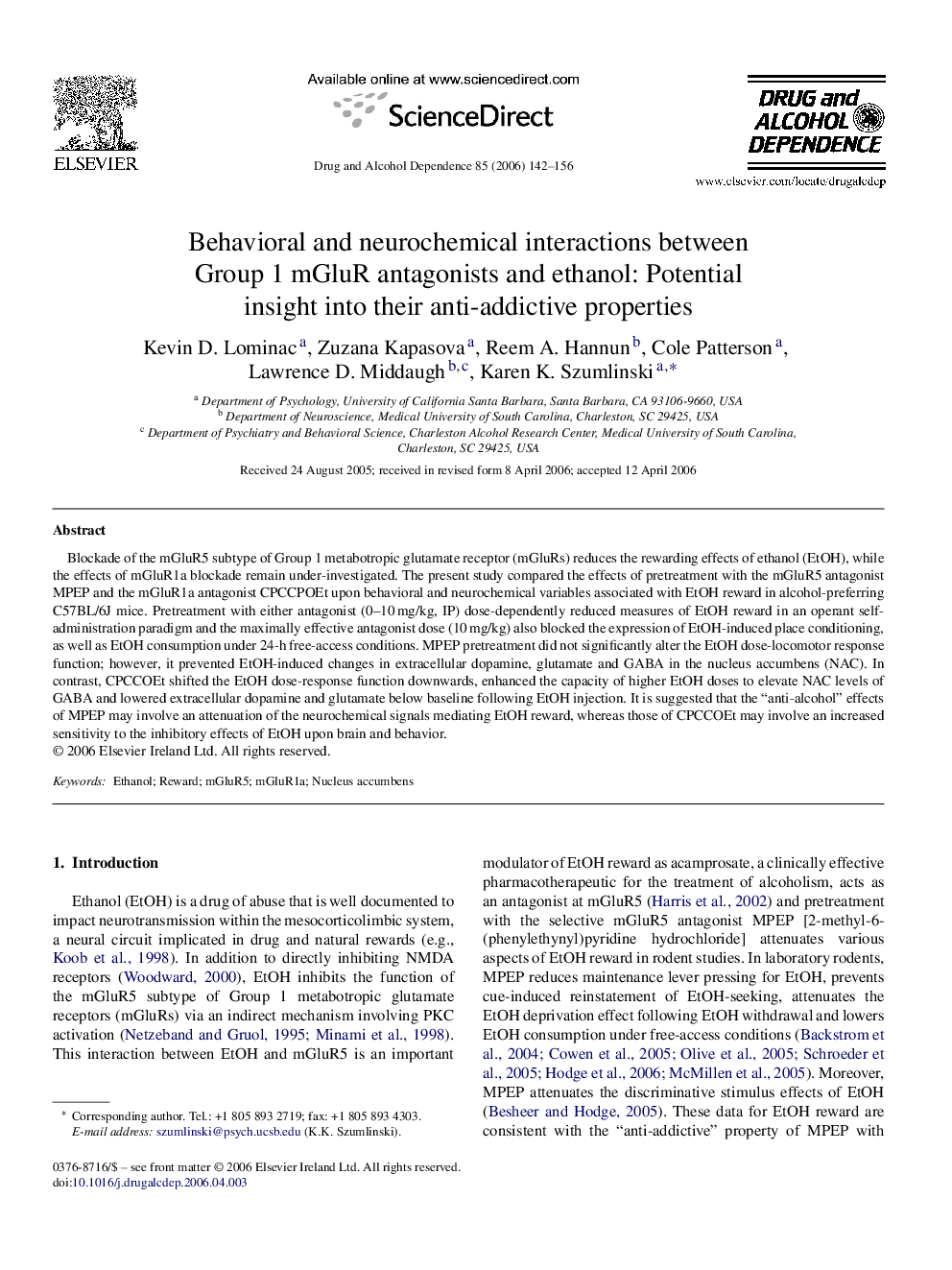| Article ID | Journal | Published Year | Pages | File Type |
|---|---|---|---|---|
| 1071410 | Drug and Alcohol Dependence | 2006 | 15 Pages |
Abstract
Blockade of the mGluR5 subtype of Group 1 metabotropic glutamate receptor (mGluRs) reduces the rewarding effects of ethanol (EtOH), while the effects of mGluR1a blockade remain under-investigated. The present study compared the effects of pretreatment with the mGluR5 antagonist MPEP and the mGluR1a antagonist CPCCPOEt upon behavioral and neurochemical variables associated with EtOH reward in alcohol-preferring C57BL/6J mice. Pretreatment with either antagonist (0-10Â mg/kg, IP) dose-dependently reduced measures of EtOH reward in an operant self-administration paradigm and the maximally effective antagonist dose (10Â mg/kg) also blocked the expression of EtOH-induced place conditioning, as well as EtOH consumption under 24-h free-access conditions. MPEP pretreatment did not significantly alter the EtOH dose-locomotor response function; however, it prevented EtOH-induced changes in extracellular dopamine, glutamate and GABA in the nucleus accumbens (NAC). In contrast, CPCCOEt shifted the EtOH dose-response function downwards, enhanced the capacity of higher EtOH doses to elevate NAC levels of GABA and lowered extracellular dopamine and glutamate below baseline following EtOH injection. It is suggested that the “anti-alcohol” effects of MPEP may involve an attenuation of the neurochemical signals mediating EtOH reward, whereas those of CPCCOEt may involve an increased sensitivity to the inhibitory effects of EtOH upon brain and behavior.
Related Topics
Life Sciences
Neuroscience
Behavioral Neuroscience
Authors
Kevin D. Lominac, Zuzana Kapasova, Reem A. Hannun, Cole Patterson, Lawrence D. Middaugh, Karen K. Szumlinski,
